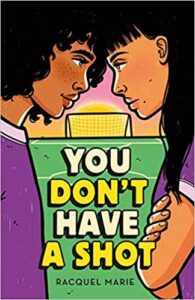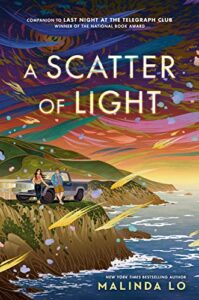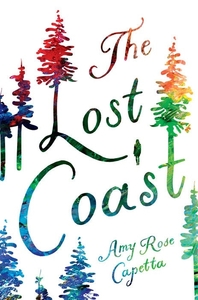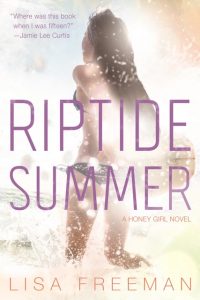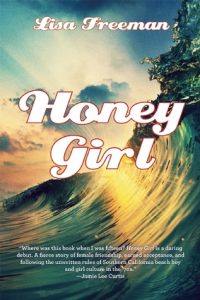You Don’t Have A Shot is sapphic soccer-rivals-to-lovers perfection set in present-day Southern California. If you’re still mourning the fact that the Women’s World Cup is over or you agree that “fútbol is life” a la Danny Rojas from Ted Lasso (but with a queer Latina twist), this book is for you!
In this heartwarming YA novel, Racquel Marie (she/her) introduces readers to Valentina “Vale” Castillo-Green, who is half Colombian, half Irish, and all about soccer. At the outset of the novel, we learn that Vale’s dream of playing college soccer has just imploded after her high school team, the Ravens, suffer a devastating loss at the hands of Hillcrest/her archrival, Leticia Ortiz. Although Vale is the captain of her team, it is apparent that she has lost her way as its leader. Vale intends to spend the summer before her senior year sulking at a low-stakes, sleepaway soccer camp she hasn’t been to in several years with her best friends and teammates, Dina and Ovie. Unbeknownst to Vale, soccer camp has gotten way more competitive in the last few years and she isn’t the only SoCal Latina planning to spend the summer there. Leticia will be attending as well, and sparks are sure to fly!
Vale is a character with depth and substance. Her inner monologue is sharp and hilarious. She is flawed, relatable, and always growing. Early on, we learn that her mother died of cancer a few years ago when she was thirteen and she is continuing to work through that grief. Unfortunately, that process is exacerbated by her complicated relationship with her father, who really wants Vale to excel in soccer, but has a penchant for negative, and often cruel, reinforcement that borders on emotional abuse. In his eyes, nothing Vale does on the pitch is ever good enough, and she has internalized his criticisms, as evidinced by her anxiety and intrusive thoughts. Notwithstanding her fraught relationship with her father and the loss of her mother, Vale is incredibly resilient and well-adjusted. She is in for an unforgettable summer where she is going to have to figure out what kind of leader she is and grapple with what soccer truly means to her.
The world that Racquel Marie builds is rich with diversity. Vale is biracial, queer, and asexual. Leticia is Cuban, a lesbian, and has two moms. There are several women of color who play important roles in Vale’s life, as well as significant bisexual, pansexual, gay, and trans characters. Although not a criticism, I really wanted to hear more about Vale’s queer asexuality. I thought it was an important aspect of her identity that I don’t usually see represented in YA literature and that Racquel Marie could have spent a little more time developing it.
Overall, I loved this book. I coveted sapphic YA when I was in high school, but I couldn’t always find it. When I did, the characters didn’t usually share my cultural background. You Don’t Have a Shot is the kind of feel-good, representative book I wish I had growing up. Read it.
Trigger Warnings: anxiety, death of a loved one, and emotionally abusive language.
Raquel R. Rivera (she/her/ella) is a Latina lawyer and lady lover from New Jersey. She is in a lifelong love affair with books and earned countless free personal pan pizzas from the Pizza Hut BOOK IT! program as a kid to prove it.

